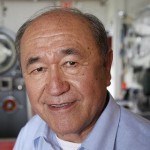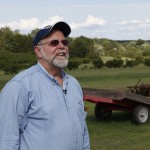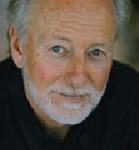Singer and songwriter, Paul Simon has a line in his wonderful poem set to music, American Tune, that has always resonated with me. “For we’ve lived so well, so long…” it goes, and later in another verse, he cautions, “…you can’t be forever blessed.” We have been blessed here, in the safe, secure, wealthy nations of the developed world. And as we grow older, it seems that we have also been lulled to sleep, cradled in our comfort zones, dead to the world.
What happened to our thirst to learn and discover new things we had as children?  Think about your grandchildren in their first year, taking those tentative steps, wanting to touch, taste, smell everything. We were all like that once. Then, gradually, without our noticing, we started craving something else — safety, security, the known world — even to the point of shrinking our aspirations to fit into what was comfortable, predictable, easy. In the process, we have sacrificed resilience and resourcefulness, the ability to adapt to changing circumstances upon which our survival as a species depended. We gave up, and opted for ‘assisted living’ long before our time (if there is ever a time).
Even if you recognize some part of yourself here, the situation is reversible. True, the bell tolls for us all. But in the meantime, what is there to stop us from making the most of the ‘life we are given‘ to borrow from a title of a wonderful book by George Leonard and Michael Murphy, pioneers of the human potential movement and founders of Esalen Institute in Big Sur, California.
Published in 1995, this workbook for Leonard and Murphy’s Intergral Transformative Practice, remains a prototype, indeed a classic, of the self-help genre. It weaves together proven practices: exercise, diet, daily affirmations, and community, into a program that is both rigorous and enjoyable. (ITP groups continue to form today). Here’s a quote from novelist, James Agee, that sets the book’s tone: “I believe that every human being is potentially capable, within his ‘limits,’ of fully ‘realizing’ his potentialities; that … his being cheated and choked of it, is infinitely the ghastliest, commonest, and most inclusive of all the crimes of which the human world can accuse itself.”
Is waking up hard to do? Perhaps. But clinging to the deadly comfort zone is a far worse choice. Conclude Leonard and Murphy: “We believe that by the very nature of things, each of us carries a spark of divinity in every cell and that we have the potential to manifest powers of body, mind, heart, and soul beyond our present ability to imagine. We believe that a society could find no better primary intention, no more appropriate compass course for its programs and policies, than the realization of every citizen’s positive potential.” Amen. And go for it!
More information:
Excerpt from The Life We Are Given
Integral Transformative Practice Workshops
Esalen Institute in Big Sur, California
World Cafe – a conversational process for breakthrough thinking.



